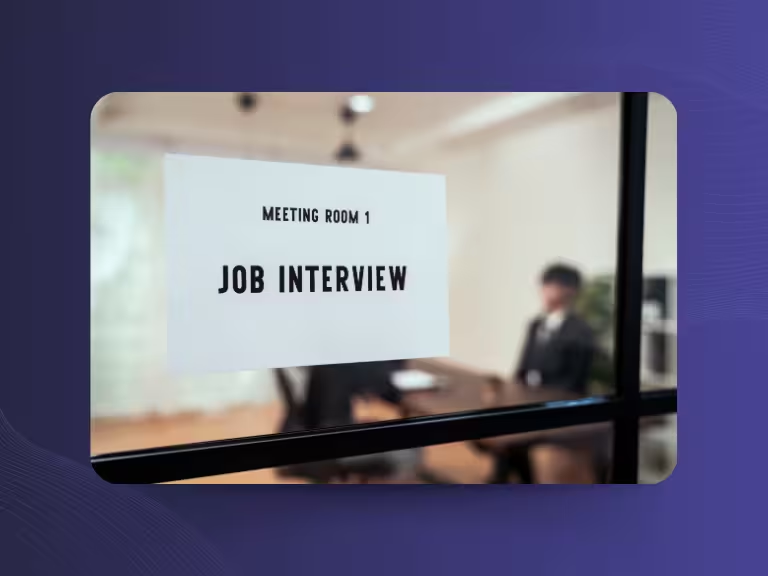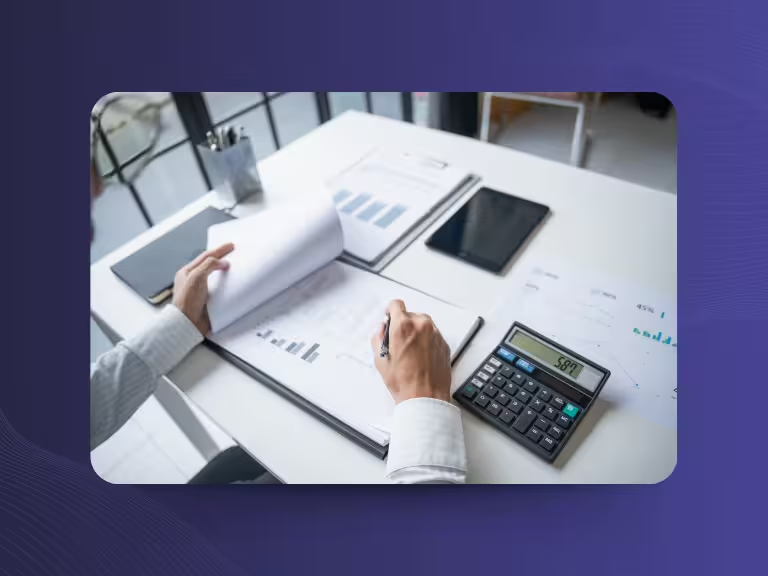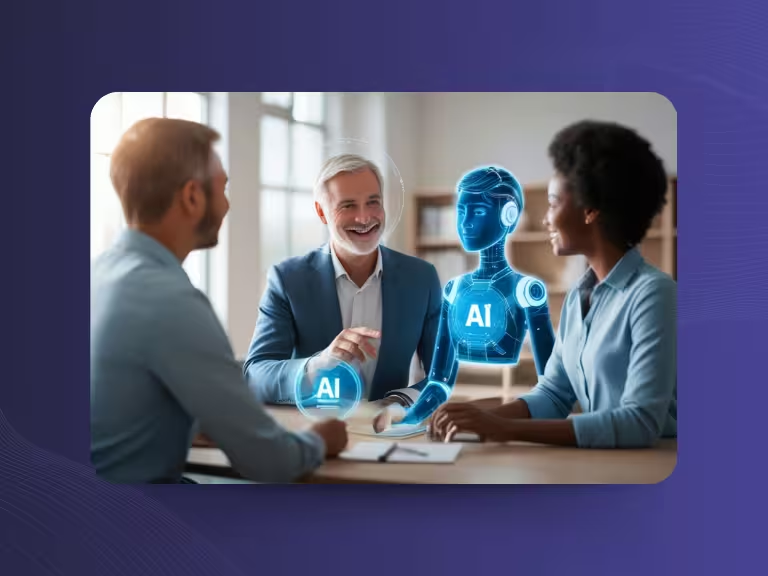Table of Contents
Your heart beats faster, your palms get sweaty – and all just at the thought of the upcoming job interview? Don't worry, you're not alone in this. Thorough interview preparation is the key to a successful job interview and can make the difference between landing your dream job and missing out on an opportunity.
With the right preparation, you'll not only gain confidence but also significantly reduce your stress levels. You'll be able to present your strengths more effectively and appear more convincing. This article shows you how to systematically prepare for your interview – from perfect self-presentation to clever research and mental strategies.
Preparing for digital formats is also especially important today. Video interviews have long become standard, and modern companies increasingly focus on diversity and networking. We consider all these aspects in our practical interview preparation tips.
Building the Foundation: Practical Interview Preparation
Successfully Designing Your Self-Presentation
Your self-presentation is often the first impression you leave. This is where it's decided whether the interviewer listens attentively or mentally checks out. An authentic and well-structured introduction of yourself is therefore essential.
The STAR method is your best friend here. STAR stands for Situation, Task, Action, and Result. Instead of saying "I'm very much a team player," you describe a concrete situation: "In my last project, our team faced the challenge of retaining an important client (Situation). My task was to develop a solution (Task). I organized daily coordination meetings and coordinated collaboration between departments (Action). The result was 98 percent customer satisfaction (Result)."
Practice your self-presentation regularly – ideally in front of friends or mentors. Modern tools like Sally can help by recording and analyzing your practice interviews, allowing you to continuously improve your presentation.
Preparing for Typical Interview Questions
You can almost always expect certain questions. "Tell me about yourself," "Why do you want to work for us?" or "Where do you see yourself in five years?" – these classics appear in nearly every interview.
Develop an authentic answer with practical relevance for each common question. When it comes to weaknesses, for example: Instead of "I'm too much of a perfectionist," you'd better say "I've learned that I used to spend too much time on details. That's why I now consciously set time limits and regularly seek feedback."
Also prepare for difficult questions. For salary expectations, research industry standards beforehand. For gaps in your resume, honestly explain what you learned during that time. Storytelling makes your answers vivid and memorable.
Preparing Your Own Questions for the Interviewer
Those who don't ask questions appear uninterested. Good follow-up questions show that you've thought things through and have genuine interest in the company and position. They also deepen the dialogue and give you valuable insights.
Clever questions might be: "How would you describe the company culture?" or "What challenges do you see for this position in the coming months?" Avoid questions about vacation, salary, or working hours in the first interview – it makes it seem like you're only concerned with benefits.

Company and Interview: Research & First Impressions
Comprehensive Company Research
Superficial research is immediately obvious. Therefore, invest time in thorough company analysis. The company website is your starting point – here you'll find mission, values, and current projects. But also look at social media profiles, read press releases, and take a look at review platforms.
Pay special attention to company culture and current developments. If the company has just launched a new product line, you can reference it in the interview. This shows that you've really engaged with the employer.
Your research should be visible in your answers and questions. Instead of "I want to work here because it's a large company," you say "I'm excited about your mission to develop sustainable solutions. Particularly your recently launched environmental project shows that you live values that are also important to me."
Sustainably Designing Dress Code and First Appearance
First impressions are formed in seconds – and you don't get a second chance. Orient yourself to the company culture and industry. In conservative industries like banking or consulting, business attire is standard. In creative or tech companies, smart casual might be appropriate.
The rule "dress for the job you want" still applies. Better to be slightly more formal than too casual. Your clothing should be clean, pressed, and well-fitting. But it's not just about clothing – your body language also sends signals.
An open posture, firm handshake, and eye contact appear confident and professional. Avoid crossed arms or constant fidgeting. Your appearance should remain authentic – don't completely disguise yourself, but show your best version.
Digital Interview Formats: Special Requirements and Preparation
Video interviews are now standard – over 70 percent of companies use them. The preparation differs significantly from in-person conversations. Definitely test your technology beforehand: Do the camera and microphone work? Is the internet connection stable?
Pay attention to your camera position – it should be at eye level so you don't have to look down or up. Ensure good lighting, ideally natural light from the front. Choose a quiet, neutral background without distractions.
Your body language works differently in front of the camera. Gestures and facial expressions should be somewhat more pronounced than in personal conversations. Look directly into the camera, not at the screen – this creates real eye contact. And if technology fails: Stay calm and professional.
Mental Strength and Stress Management for the Interview
Effectively Reducing Nervousness
Nervousness before an interview is completely normal. What matters is how you handle it. Breathing exercises are a proven method: Breathe in for four seconds, hold for four seconds, and breathe out for four seconds. Repeat this several times.
Visualization also helps. Imagine the interview going successfully. You answer confidently, the interviewer nods approvingly, the atmosphere is positive. These mental images build confidence and reduce stress.
Brief writing or reflection exercises can help you focus. Note three points you definitely want to mention, or write down your strengths. This gives you clarity and structure for the conversation.
Building Self-Confidence Through Positive Self-Talk
Your inner dialogue influences your presence more than you think. Instead of "I'll never manage this," you think "I'm well-prepared and can show my strengths." Positive self-talk isn't self-deception, but realistic encouragement.
Develop personal affirmations: "I bring valuable experience," "I'm the right person for this position," or "I can express myself clearly and convincingly." Repeat these sentences before the interview – they become your mental armor.
Managing Stress and Stage Fright During the Interview
You can also reduce stress during the interview itself. If you get a difficult question, take a moment. "That's an interesting question, let me think about it briefly" is perfectly fine. Use these pauses to breathe deeply and collect yourself.
Focus on the next point, not the entire rest of the interview. This makes the situation less overwhelming. And remember: The interviewer also wants the conversation to be successful.

Beyond Basics: Networking, Diversity & Feedback as Competitive Advantages
Using Networking Cleverly
The hidden job market – jobs that are never publicly advertised – makes up a large portion of all positions. This is where networking comes into play. Strategically built contacts can facilitate your access to interviews or even shorten the application process.
LinkedIn is your most important tool here. Network with people from your industry, former colleagues, and HR professionals. But alumni networks or industry events also offer valuable contacts.
However, networking doesn't just mean taking, but also giving. Share relevant content, comment meaningfully on posts, and offer your help. Real relationships emerge through reciprocity and trust.
Showing Diversity Competence in the Interview
Diversity and inclusion are central topics for modern companies. Show your competence in this area through concrete examples. Have you worked in international teams? Were you involved in diversity initiatives?
Frame your experiences positively: "In my last team, people from five different countries worked together. This diversity of perspectives significantly improved our problem-solving ability." This shows that you see diversity as enriching.
Actively Seeking Feedback After the Interview
After the interview is before the next interview. Politely ask for feedback – even if you receive a rejection. "Thank you for the conversation. Could you give me brief feedback on where I can improve?" shows professionalism and willingness to learn.
Not all companies give detailed feedback, but when they do, it's worth its weight in gold. Modern tools like Sally can help you structure and analyze your own interview notes to recognize patterns and continuously improve.
Summary & Conclusion
Successful interview preparation combines professional excellence with mental strength. The most important action recommendations in overview: Structure your self-presentation with the STAR method, prepare for typical questions, and develop clever follow-up questions. Invest time in thorough company research and prepare specifically for digital formats.
Don't underestimate the importance of mental preparation. Breathing exercises, visualization, and positive self-talk reduce stress and build confidence. Use networking as a competitive advantage and show your diversity competence through concrete examples.
Don't forget to ask for feedback after every interview. Every conversation is a learning opportunity – use it for your personal development. With the right preparation, your next interview will not only be successful but also a positive experience that advances you.



Try meeting transcription now!
Experience how effortless meeting notes can be – try Sally free for 4 weeks. No credit card required.
Test NowOr: Arrange a Demo Appointment



